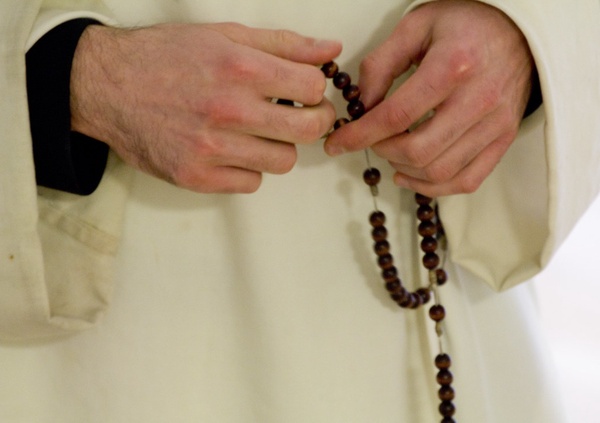A couple of months ago, I met a new friend. We exchanged numbers and have since talked over the phone about our common interests, the weather, our pets, and other things of that nature. In one conversation, we did talk about religion, and I learned that my friend was agnostic. To my friend, Christianity wasn’t all that important. This attitude did not surprise me at all. A lot of people don’t believe in Christianity. It’s a faith that only gives as much as you put into it, so you won’t see any benefits unless you commit to its doctrines.
Religion is a way of living, not just something you do on Sunday. Christianity does not begin and end inside a church building. Christian masses exist to keep holy the Lord’s Day and to improve the broader Christian community through the liturgy and the Eucharist. It’s an important part of the Faith, but it’s still a part of the Faith. It’s not the be-all and end-all.
To be a Christian is to fight against the darkness in your heart preventing you from being all you can be. Christianity is a struggle against what separates you from God. Every day, we face the temptation to do wrong, and we must arm ourselves with faith to overcome that temptation. This isn’t a minor problem, something we can deal with by going to church every Sunday. It requires a state of mind radically different from the average believer. Believers must consider God’s commandments every time they make a moral decision. St. Paul once said that “whether you eat or drink, or whatever you do, do all to the glory of God.” Christians should want to do what God wants them to do and think about what their actions mean to God.
I imagine that most Christians will admit this if they are asked this question, yet I suspect that many do not live this truth. I know that I used to live like it wasn’t necessary. Once upon a time, Christianity was just something I did at church every Sunday with my family. I didn’t live like Christianity was real. I lived according to my rules, which were the lowest common denominator of decency.
An important part of our psychology is that, if we do not live like something is true, then we will cease thinking it is true. If you acknowledge that Jesus came to save us all, then it’d be irrational to act otherwise. Thus, a person who lives this contradiction will feel the urge to fix it, one way or another. Given how tempting sin is, people tend to conform what they believe to their bad habits rather than conforming their actions to what they know to be right.
Whatever code you live by is your religion. A good exercise one should do, no matter their faith, is to look at how you live your life. How do your actions reflect what you know to be true? How do they reflect on your character? Is there a contradiction between how you act and what you believe? If so, how can you fix it? If you do not fix your actions, you might wind up believing something bogus just because it’s easier for you, and since when is the easy way the right way? Thankfully, this process also works in reverse. If you act like Christianity is true, then it’ll be much easier to believe in Christianity. The same is true for anything else you want to believe.
I imagine the reason why so many people are non-religious is that we’re encouraged to behave as though Christianity were false. We’re told that religion is a private affair, something to be talked about behind closed doors and out of sight. We’re told that the most important things in life are wealth, influence, and self-gratification. We’re told that being a good person only requires doing the bare minimum for decency. Churches do have programs to help young people learn their faith, but they offer little for adults. I think Christians should remedy this by creating more support networks for their fellow Christians to help them get jobs, find life partners, and raise their children. If more networks like those existed, I don’t think there’d be as much apostasy happening. I also think that a little more Christian charity can go a long way to making the world a better place.
